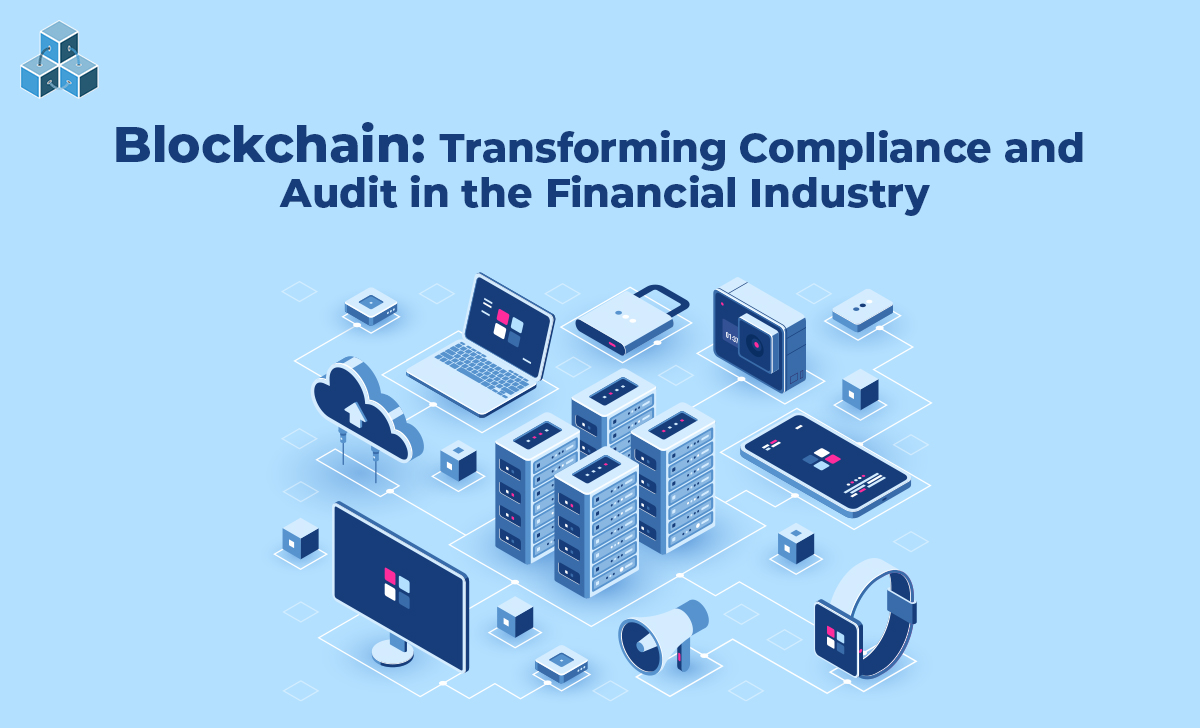The financial industry operates in a regulated environment where compliance and audit are crucial for maintaining transparency, accountability and trust. However, the traditional system often struggles with inefficiencies, data differences, and high costs. Blockchain technology offers a transformative solution by delivering a decentralized, immutable, and transparent ledger system. It is essential to ensure that the business is operationally resilient and operating in a safe and sound manner.
This blog will explore how blockchain can recast regulatory compliance and audit in the financial industry, streamlining processes, enhancing data integrity and reducing risks.
Benefits of Blockchain in Financial Services
Blockchain holds the potential to transform the financial industry into a more transparent, secure, immutable, less exposed to frauds, risks and thefts, and cost-effective.
- Enhanced Data Integrity and Transparency:- Blockchain technology has the potential to provide enhanced data integrity and transparency. Blockchain is a distributed ledger shared among multiple participants’ transaction records on the platform in a transparent and immutable manner. The transparency feature of blockchain enables regulators and auditors to access a single source, eliminate data differences and ensure accurate and reliable reporting. The cryptographic algorithm further enhances data security and reduces the risk of data tampering, theft and fraud.
- Immutable Audit Trails:- Once a transaction records on the ledger, its immutable nature does not allow transactions to alter or delete. This feature creates an audit trail which enables auditors and regulators to trace the origin and movement of assets, transactions and data. This feature maintains the ability to verify the authenticity and integrity of records and simplify the audit process, reducing the need for a comprehensive manual and enhancing the overall efficiency of auditing activities.
- Real-time Regulatory Reporting:- Traditional regulatory reporting involves a complex and time-consuming process of gathering data from various sources and submitting reports within deadlines. Blockchain can help streamline this process by offering real-time access to the data stored on the distributed ledger platform. Regulators in blockchain can directly access the information from the platform, which reduces report errors and delays. Smart contracts in blockchain can help automate the procedure of reporting obligations, automate notifications and ensure on-time compliance.
- Smart Contracts for Compliance Automation:- Smart contracts based on blockchain offer significant potential to automate compliance processes. Smart contracts are these self-executing contracts with predefined rules and conditions induced. These contracts can automatically enforce regulatory requirements and ensure compliance in the transaction lifecycle. For example, smart contracts can automatically verify the identities of the parties, perform all necessary AML/KYC reviews, and enforce transaction limits or regulatory obligations. The automated contract reduces the dependency on manual processes, minimizes human error and improves accuracy and efficiency.
- Enhanced Security and Privacy:- Blockchain offers robust security features with advanced cryptographic techniques to secure data and transactions. Leverage blockchain’s decentralized architecture to improve security measures and protect sensitive information from unauthorized access and cyberattacks. Moreover, blockchain offers privacy features, allowing users to maintain control over their data while protecting data and selectively sharing it with authorized entities. It ensures compliance with privacy regulations and enhances customer trust.
- Regulatory Compliance across Borders:- The borderless feature of blockchain has the potential to simplify regulatory compliance across jurisdictions. With blockchain infrastructure, regulators from different countries can access the same platform to verify compliance, share information and collaborate with cross-border investigations. It fosters international collaboration, reduces duplicate efforts and enhances effective regulatory oversight.
Conclusion
Blockchain technology has the potential to transform regulatory compliance and audit processes in the fintech industry. Blockchain offers enhanced data integrity, transparency and audibility. Blockchain can streamline the reporting system, automate compliance obligations, and reduce the risk of fraud. Blockchain’s immutable nature ensures the accuracy and integrity of records, simplifies audits and reduces the need for manual work. Financial services can embrace blockchain and the industry can expect improved efficiency, cost savings and enhanced regulation. Leveraging the transformative power of Blockchain financial services can form a new paradigm of trust, compliance, transparency and immutability.
Blockcoders is a blockchain development company that creates, designs, and implements various blockchain development solutions. We work to harness the potential of blockchain to enhance security, transparency, and efficiency. Connect with us today!!
 info@blockcoders.pro
info@blockcoders.pro
 Our global presence :
Our global presence :
 |
|
 |
|
 |
|


